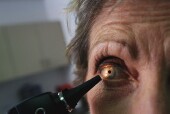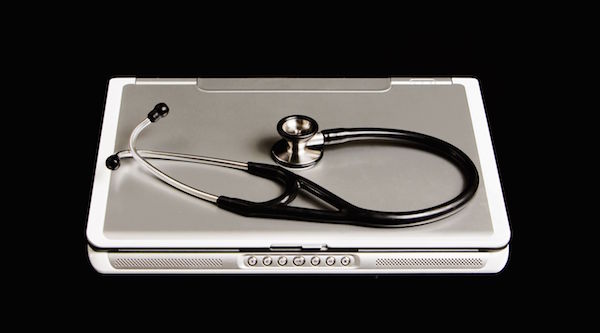
THURSDAY, Dec. 31 (HealthDay News) — Steroid injections into the eye slowed diabetes-related eye disease, though lasers remain the treatment of choice because of side effects related to the steroids, new research shows.
Researchers from the Johns Hopkins Wilmer Eye Institute gave 693 men and women who had diabetic retinopathy with macular edema either injections of a corticosteroid into their eyes as often as every four months or a laser photocoagulation, the standard treatment. The average age of the participants was 63.
Retinopathy is a long-term complication of diabetes that can lead to blindness. Macular edema, which can further interfere with vision, is a swelling of the central portion of the retina caused by fluid leakage.
Over time, retinopathy can advance to proliferative diabetic retinopathy, in which abnormal blood vessels grow on the optic nerve in the back of the eye, which communicates information from the retina to the brain, or elsewhere on the light-sensitive retina. The study authors found that steroid treatments reduced the risk of progression of diabetic retinopathy.
However, steroids did not prevent the progression of macular edema, according to the study.
And while steroids did help to improve the vision of participants, the results were no better than the laser treatments. Because the use of steroids in the eye can increase the risk of other eye diseases, including glaucoma and cataracts, lasers remain the treatment of choice for now, said lead study author Neil Bressler, a professor of ophthalmology and chief of the retina division of the eye institute.
“Steroid treatment worked, but because of safety issues, cannot be recommended routinely at this time,” Bressler said in a news release from the institute. “It is a condition that can be treated safely and effectively with lasers.”
The study findings are published in the December issue of Archives of Ophthalmology.
About 700,000 Americans have proliferative diabetic retinopathy, and 63,000 new cases develop each year, according to background information provided in the news release.
Corticosteroids may slow the progression of retinopathy by reducing the production of compounds that promote the growth of harmful new blood vessels, the researchers said.
More research is needed to determine if steroids can be used without increasing the risk of glaucoma or cataracts, the authors said.
More information
The U.S. National Eye Institute has more on diabetic retinopathy.

